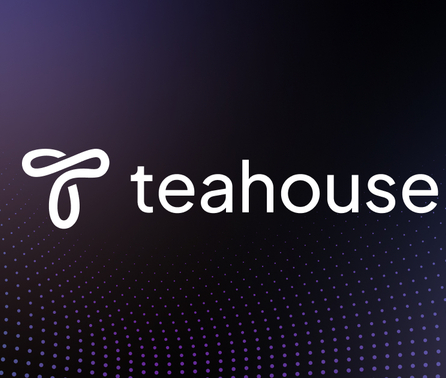
Teahouse Finance
Teahouse Finance is a multi-strategy DeFi investment platform dedicated to secure and flexible asset management.
PoC Required
Rewards
Rewards by Threat Level
Rewards are distributed according to the impact the vulnerability could otherwise cause based on the Impacts in Scope table further below.
Repeatable Attack Limitations
In cases of repeatable attacks for smart contract bugs, only the first attack is considered if the smart contracts where the vulnerability exists can be upgraded, paused, or killed. If the attack impacts a smart contract directly holding funds that cannot be upgraded or paused, the amount of funds at risk will be calculated with the first attack being at 100% of the funds that could be stolen and then a reduction of 25% from the amount of the first attack for every 300 blocks the attack needs for subsequent attacks from the first attack, rounded down. For avoidance of doubt, if a second attack would happen at 600 blocks and then a third at 900 blocks, the funds at risk would be counted at 50% and 75% of the reward from the first attack, respectively.
Previous Audits
Teahouse Finance has provided these completed audit review reports for reference. Any unfixed vulnerabilities mentioned in these reports are not eligible for a reward.
- https://vault.teahouse.finance/Teahouse-Finance_audit_report_2023-06-14.pdf
- https://omniscia.io/reports/teahouse-finance-portfolio-strategy-65ad01e4cd79e50018d6fa75/
Proof of Concept (PoC) Requirements
A PoC is required for the following severity levels:
- Smart Contract: Critical
- Smart Contract: High
All PoCs submitted must comply with the Immunefi-wide PoC Guidelines and Rules. Bug report submissions without a PoC when a PoC is required will not be provided with a reward.
Reward Payment Terms
Payouts are handled by the Teahouse Finance team directly and are denominated in USD. However, payments are done in USDC.
Program Overview
Teahouse Finance is a multi-strategy DeFi investment platform dedicated to secure and flexible asset management.
Teahouse Finance functions as a simplified layer above DeFi platforms such as Uniswap V3. This approach removes the complexities of managing liquidity and crypto assets, enabling users to deposit and entrust Teahouse Finance to generate passive income on their behalf.
Users can find a wide range of strategies on the Teahouse strategy platform. Teahouse Finance offers investment choices based on risk tolerance, selecting from low, medium, to high-risk strategies. Additionally, users have the flexibility to choose strategies aligned with their specific preferences and investment goals.
For more information about Teahouse Finance, please visit https://teahouse.finance/
Teahouse Finance provides rewards in USDC. For more details about the payment process, please view the Rewards by Threat Level section further below.
Primacy of Impact vs Primacy of Rules
Teahouse Finance adheres to the Primacy of Impact for the following severity levels:
- Smart Contract: Critical
- Smart Contract: High
If a category’s severity level is covered within the Primacy of Impact, it means that even if the impacted asset is not in-scope but is owned by the project, then it would be considered as in-scope of the bug bounty program as long as it involves an impact under that respective severity level. When submitting a report, just select the Primacy of Impact asset placeholder. If the team behind this project has multiple projects, those other projects are not covered under the Primacy of Impact of this program. Instead, check if those other projects have a bug bounty program on Immunefi.
Testnet and mock files are not covered under the Primacy of Impact.
All other severity levels not listed here are considered under the Primacy of Rules, which means that they are bound by the terms of the bug bounty program.
Restrictions on Security Researcher Eligibility
Security researchers who fall under any of the following are ineligible for a reward
- On OFACs SDN list
- Official contributor, both past or present
- Employees and/or individuals closely associated with the project
- Security auditors who directly or indirectly participated in the audit review
Immunefi Standard Badge
Teahouse Finance has satisfied the requirements for the Immunefi Standard Badge, which is given to projects that adhere to our best practices.
KYC not required
No KYC information is required for payout processing.
Proof of Concept
Proof of concept is always required for all severities.
Responsible Publication
Category 3: Approval Required
Prohibited Activities
- Any testing on mainnet or public testnet deployed code; all testing should be done on local-forks of either public testnet or mainnet
- Any testing with pricing oracles or third-party smart contracts
- Attempting phishing or other social engineering attacks against our employees and/or customers
- Any testing with third-party systems and applications (e.g. browser extensions) as well as websites (e.g. SSO providers, advertising networks)
- Any denial of service attacks that are executed against project assets
- Automated testing of services that generates significant amounts of traffic
- Public disclosure of an unpatched vulnerability in an embargoed bounty
- Any other actions prohibited by the Immunefi Rules
Feasibility Limitations
The project may be receiving reports that are valid (the bug and attack vector are real) and cite assets and impacts that are in scope, but there may be obstacles or barriers to executing the attack in the real world. In other words, there is a question about how feasible the attack really is. Conversely, there may also be mitigation measures that projects can take to prevent the impact of the bug, which are not feasible or would require unconventional action and hence, should not be used as reasons for downgrading a bug's severity.
Therefore, Immunefi has developed a set of feasibility limitation standards which by default states what security researchers, as well as projects, can or cannot cite when reviewing a bug report.

